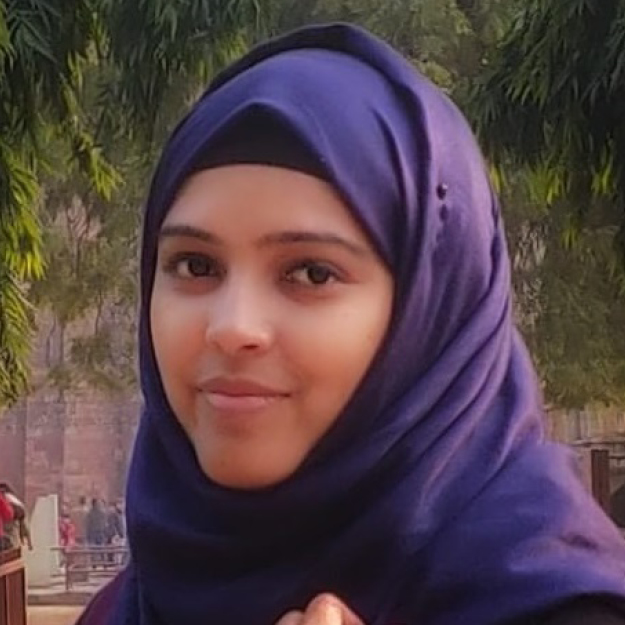
Sadaf Khan
About Sadaf
Ms Khan received a silver medal whilst undertaking her Masters of Technology in biotechnology studies from Integral University, Lucknow. Sadaf also holds a Bachelor of Technology in biotechnology from Amity University where she was awarded a 100 per cent merit scholarship.
Sadaf has also worked as a research intern at the Indian Institute of Toxicology Research (CSIR-IITR) in animal cell culture. Her master’s dissertation was in the field of environmental biotechnology from CSIR-NEERI (National Environmental Engineering Research Institute).
Sadaf also qualified for the Ministry of Science and Technology’s DBT-JRF Award in 2018 and for her graduate study, she was awarded ‘Best Interpersonal Skills and Team Spirit’.
Project details
Development of Biobased Silver Nano-Particles for Application as Wastewater Disinfectant
Growing industrialization and various other human activities have led to the dwindling availability of clean water. The ever-increasing demand for hygienic water has prompted the development of technologies that can be used for treating polluted water with heavy metals, microbes, and pesticides. Many water-borne diseases are a result of blooming microbial populations in water. Conventional methods such as chlorination, ozonation have limitations owing to the formation of disinfection by-products which are carcinogenic in nature. It is therefore vital to develop effective and low-cost technologies that address the problem. Among various elements available in nature, silver has a substantial history of significant disinfection and antimicrobial properties. Further, silver ions can attach effectively to the membranes of water-bourne microbes, thus preventing their multiplication, and ultimately causing death. The current project aims to use nanotechnology to efficiently synthesize bio-based silver nanoparticles that have disinfection properties against microbe-contaminated water. This would involve two parallel protocols to synthesize Ag-nanoparticles: 1) the use of various strains of bacteria, algae, fungi 2) the use of “left-over post-production of juices” as natural fruit components that act as reducing agents. 1. Synthesis of silver nanoparticles using various cultures of bacteria, fungi or algae and in parallel natural fruit components. 2. Isolation/purification/characterization of Ag-nanoparticles using UV-Vis/SEM/FTIR/EDX. 3. Antibacterial assay of Ag-nanoparticles. 4. Application to water purification: development of suitable methods followed by field trials and scaling of the overall technology: sedimentation/decantation of Biomass of silver nanoparticles reacting with bacteria; The clear water will be tested for the presence of silver; if the silver concentration is detected to be above 100ppb, the collected water will be treated with fruits extracts acting as metal chelators for capturing silver particles and the sedimentation/decantation will be repeated (this time the sedimented biomass will be collected for Ag-nanoparticles re-synthesis) and clear water will be released.
View full project details
